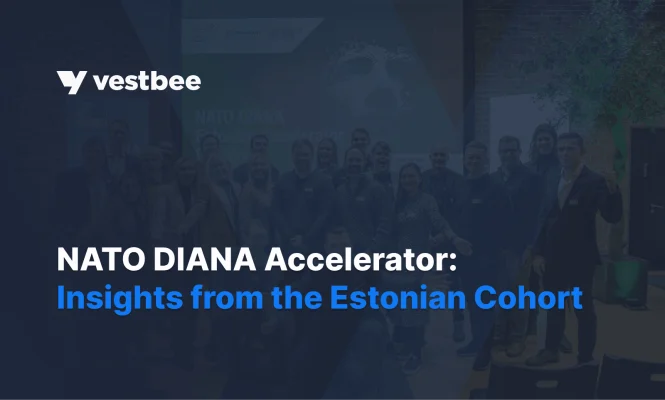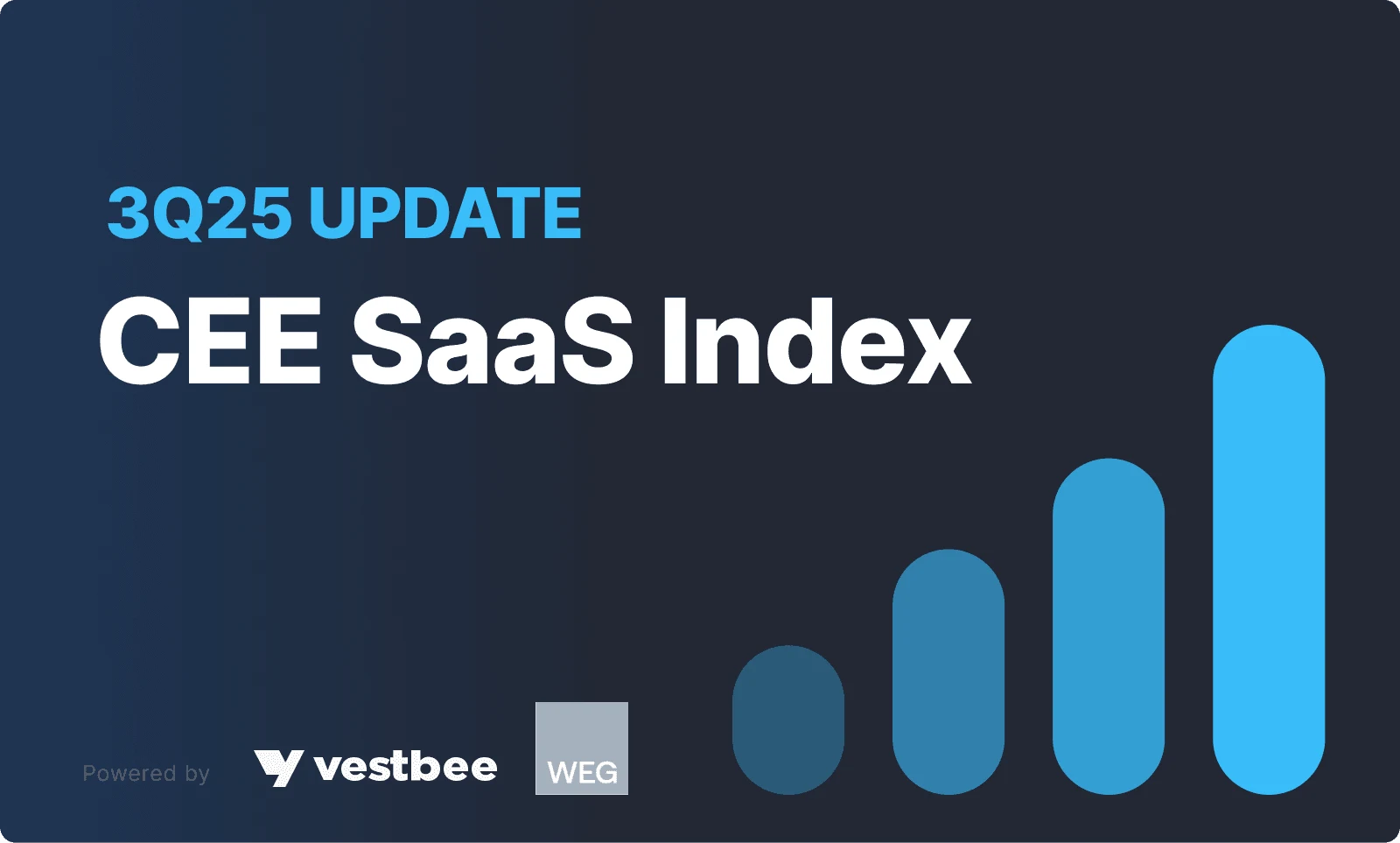Defence Innovation Accelerator for the North Atlantic (DIANA) is a €50 million initiative launched by NATO to harness dual-use technologies for transatlantic defence and security. Established in 2022, the program aims to support selected deeptech startups and offer them access to NATO resources, mentorship, and a €100,000 grant funding necessary to tailor their solutions for defence and security needs.
In 2023, DIANA initiated its pilot challenge programs, out of 1300 choosing 44 startups from 19 countries operating in three key areas: energy resilience, undersea sensing and surveillance, and secure information sharing. Nine of them were selected to develop their solutions at DIANA’s CEE hub — the Tehnopol Science and Business Park in Tallinn, Estonia — one of the five other accelerator sites.
As of now, the application process for the second edition of the NATO DIANA Accelerator is ongoing and will close on August 9. To learn more about the program, Vestbee interviewed the participants from the Estonian cohort: GaltTec, Lobster Robotics, and REVOBEAM. They discussed the challenges they faced during the program and insights they gained to advance the global defence sector.
Insights from the Estonian cohort
This year, DIANA opened its pilot programs across five locations: Estonia, Denmark, Italy, and two additional sites in the US. In the CEE hub in Tallinn, the helm of the acceleration program is taken by Tehnopol Startup Incubator in collaboration with other major startup ecosystem players, including Sparkup, Tartu Science Park, and the business accelerator Startup Wise Guys.
The companies participating in the NATO DIANA Estonian accelerator were GaltTec, Goldilock, IceWind, Lobster Innovations, AVoptics Limited, REVOBEAM, GIM Robotics, Dronetag, and Anzen Technology Systems.
Kadri Tammai, director of Tehnopol Startup Incubator said that all companies made remarkable progress: “The teams have made great leaps forward in developing their technology, having been able to test their products in some of the world’s best testing centers.” He highlighted that one of the strengths of the program was the constant exchange of feedback: “The key thing for us and for the teams themselves has been that they could get instant and direct feedback from experts in defence and from end users so that the products they were developing would really meet the needs of the defence sector and be integrated with existing capacity.”
Vestbee reached out to co-founder and Vice CEO of Sales and Relations at GaltTec Laura Elise Arvisto, CEO of Lobster Robotics Stephan Rutten, and CEO of REVOBEAM Mateusz Rzymowski. They shared their experiences in the DIANA program and discussed their future plans in the defence industry.
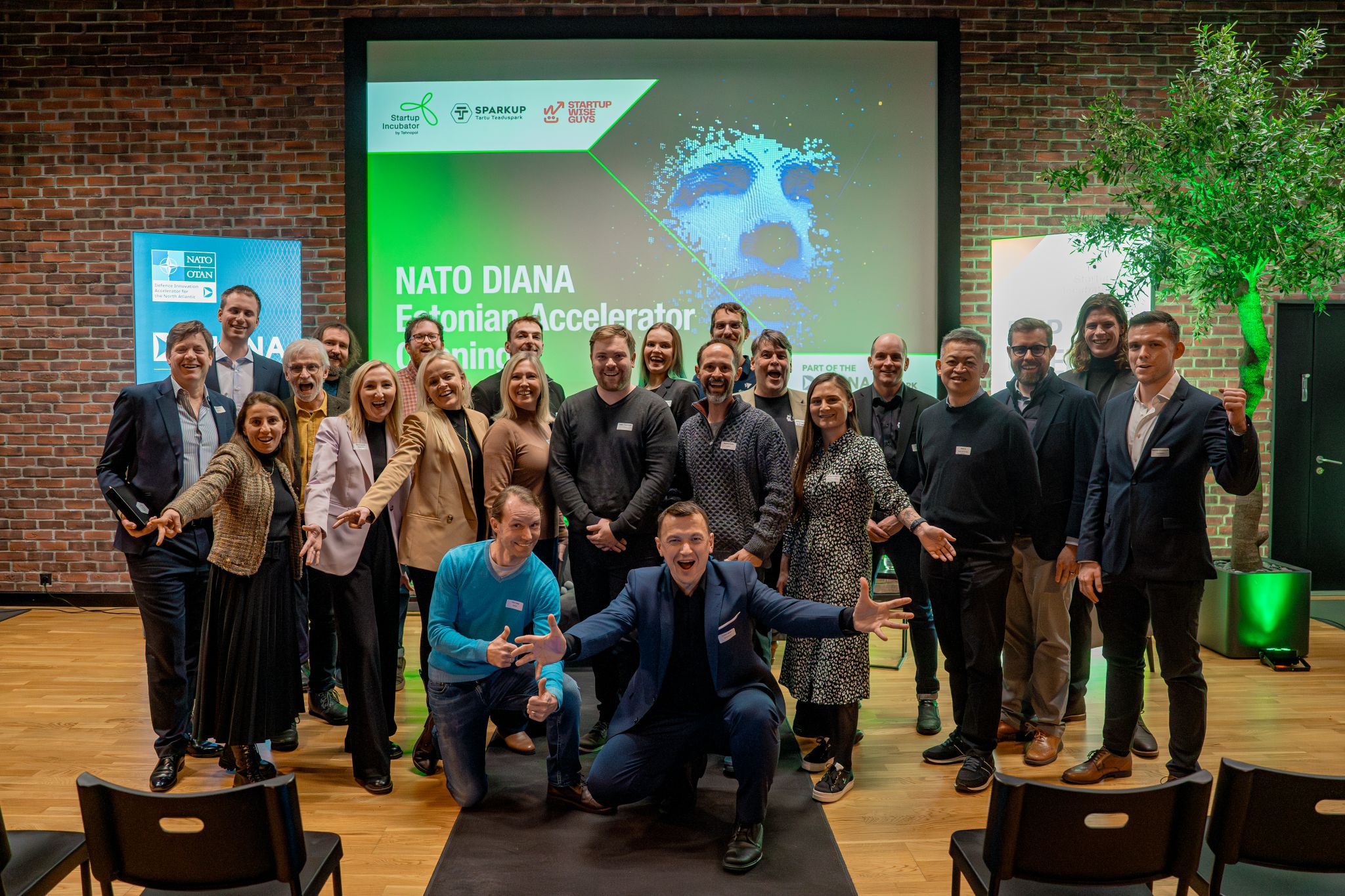
Source: LinkedIn of GaltTec
Polish startup REVOBEAM is at the forefront of wireless communication innovation, specializing in the development of beam-reconfigurable antennas that integrate seamlessly with standard radio-frequency devices. "These antennas can be used in all UAV applications, not only for defence market but also precise agriculture, logistics etc," Mateusz Rzymowski, CEO of REVOBEAM, explained the dual-use potential of the startup's technology.
Reflecting on their decision to join the NATO's accelerator, Rzymowski noted: "NATO DIANA helped us significantly as it opened a lot of doors and get access to people you normally reach after years. Right contacts, proper people are the key for speed of your success."
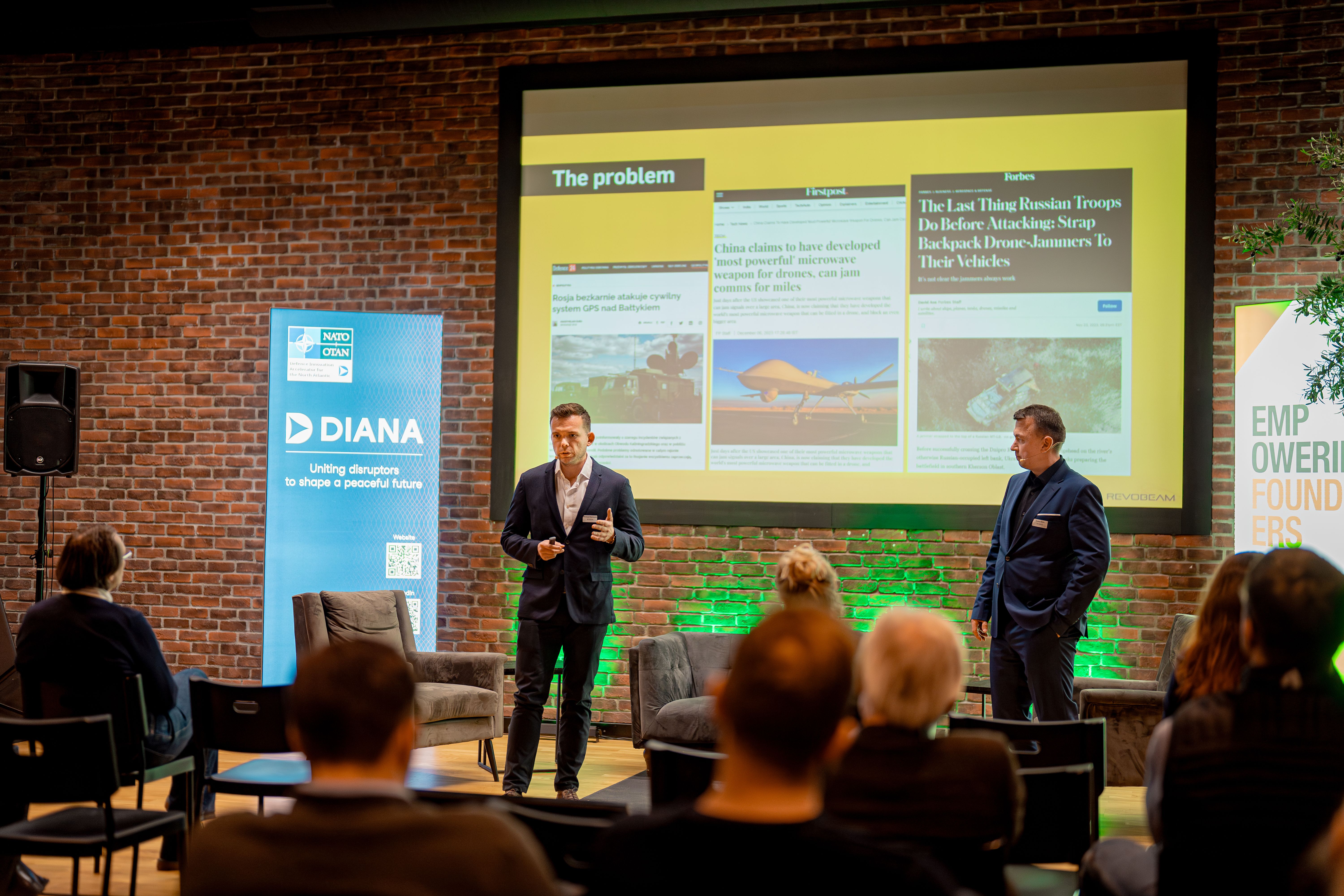
Photo provided to Vestbee by Rzymowski
Rzymowski emphasized that 90% of the effort comes from the participants, with only 10% provided by the accelerator, stating, "This is not another easy $100,000 grant." He also highlighted the importance of not getting distracted, advising, "The key is to find your niche as quickly as possible, but you need to be aware of the many attractive and interesting things around you. You need to stay focused on your path."
Next steps for REVOBEAM include preparing for further product testing and establishing their position in the market. The startup plans to scale its operations due to significant interest in its technology and aims to support mass production efforts.
GaltTec
Estonian GaltTec, another participant in the accelerator, specializes in small, powerful fuel cells for portable and off-grid devices. "Our first target market is drone manufacturers, but eventually, everything that currently uses an engine or battery can be powered by a fuel cell. It’s lighter, lasts longer, and produces fewer harmful emissions. These properties make it ideal for various defence applications, including manned and unmanned transportation, off-grid communication devices, and powering temporary habitats like field hospitals," Laura Elise Arvisto, co-founder and Vice CEO of Sales and Relations at GaltTec told Vestbee.
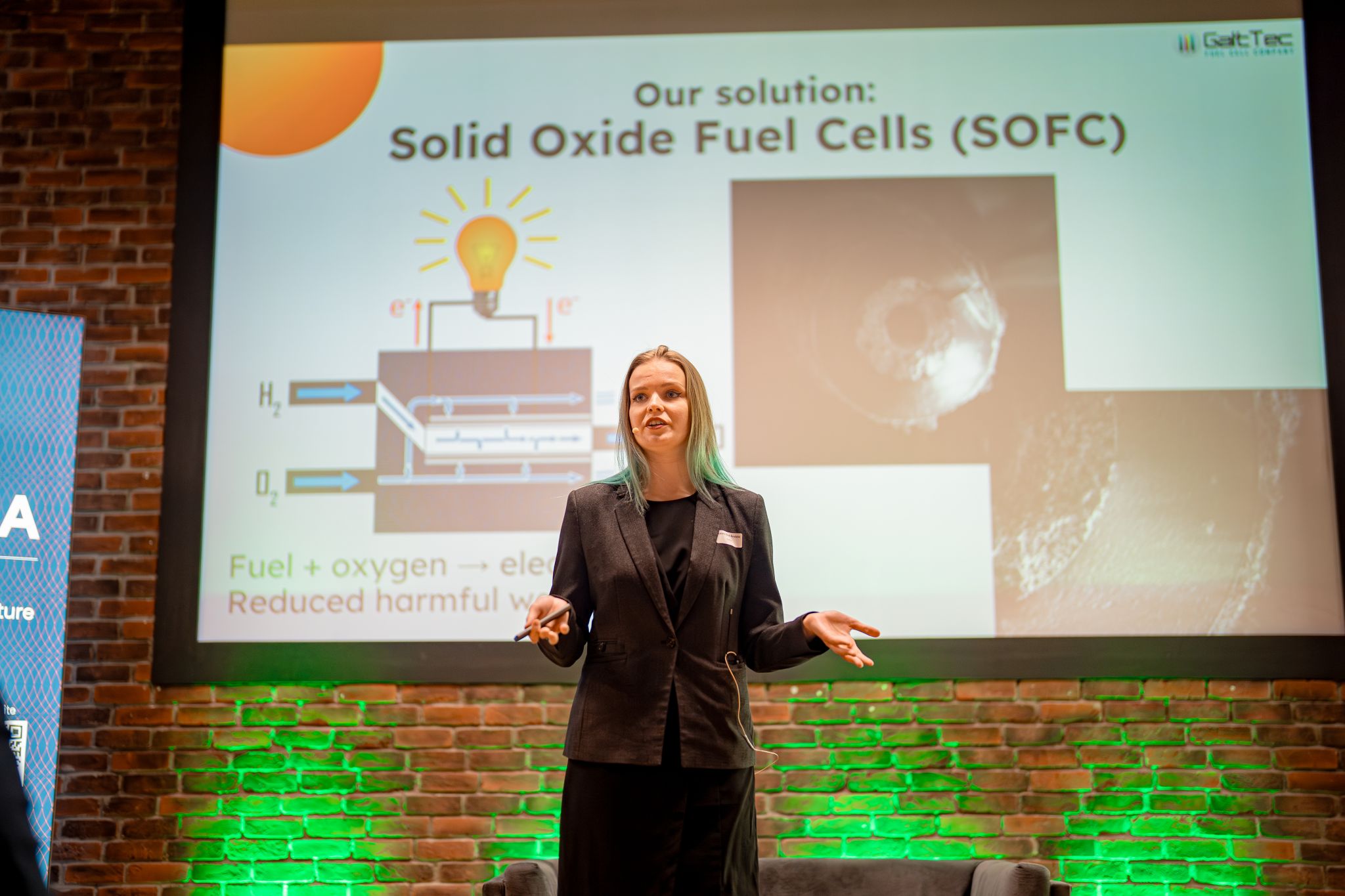
Source: LinkedIn of GaltTec
Arvisto noted the accelerator's impact on GaltTec’s recognition and validation in a competitive landscape: "Joining the program as a very early-stage startup really accelerated our growth. We instantly became known in the local ecosystem and gained interest beyond Estonia." She reflected on the challenges of being first-time founders, stating, "We began as a team of three, all with scientific backgrounds. Growing as entrepreneurs and adapting as a team has been an ongoing process."
In the past seven months, GaltTec has expanded to a team of ten and moved into several laboratories and offices in Tartu Science Park. "There have been many wins along the way, but one of the biggest was testing our first table-top prototype. With each passing week, our vision feels more attainable," shared Laura Elise Arvisto shared. Looking forward, she added, "We are focusing on product development and securing partners for our first pilots and preorders. We are committed to pursuing defence markets, which are both a significant opportunity and personally important to us."
Lobster Robotics
Delft-based Lobster Robotics develops high-resolution optical seabed maps using autonomous underwater robots, which can help identify anomalies on the seabed.
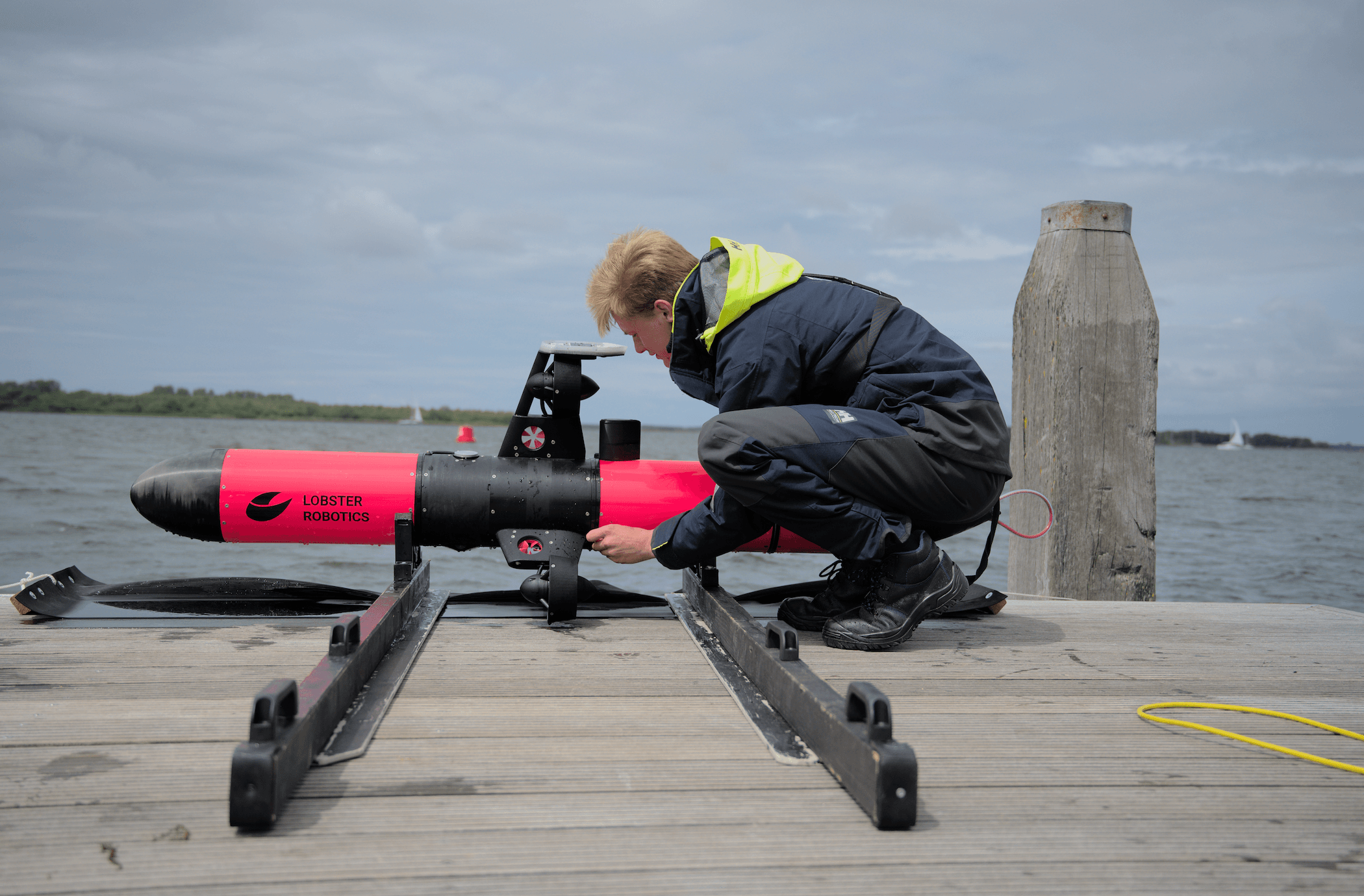
Photo provided to Vestbee by Stephan Rutten
“On the civil side, we focus on monitoring underwater habitats for offshore wind. The maps consist of thousands of individual images taken at 1m distance from the seafloor, providing both an overview and detailed views for users in standard GIS viewers,” CEO Stephan Rutten explained to us the dual-use potential of the startup's technology.
When asked about the impact of the DIANA program, he said that DIANA did exactly what it promised: it accelerated the startup. "We’ve been introduced to many stakeholders in the dual-use sector, from investors to end-users." Rutten claimed the program was intense, involving numerous workshops and mentorship sessions that challenged the team to improve every aspect of their business. He also emphasized the crucial role of guidance in entering the defense sector, noting, "We felt that we could never enter the defense market on our own. The processes are too opaque for outsiders."
Lobster Robotics faced some difficulties during the acceleration program. "There was one clear moment that was really challenging: we had a technical breakdown right before an important test. The team had worked super hard up to that point. But we managed to work around it and still complete the test successfully. So that was also a great victory for us."
Looking ahead, the startup has plans to leverage its reliable product, high-resolution optical maps. The team is preparing for a commercial launch in 2025 and is working on expanding the system's sensor suite.
What’s new about DIANA
On March 14, 2024, DIANA announced a significant expansion of its transatlantic network, increasing its accelerator sites to 23 and its test centers from 90 to 182 across 28 Allied countries. Current locations include Tallinn, Copenhagen, Seattle, Boston, and Turin, but new sites such as Kraków have been recently announced. A complete list of DIANA sites is available on their website.
This expansion is designed to enhance DIANA's capacity to support innovators in verticals such as AI, cyber capabilities, and autonomous systems.
DIANA invites startups to apply for the new cohort
As DIANA continues to grow, it has opened applications for its second cohort, inviting innovators with groundbreaking dual-use technologies to apply by August 9, 2024. The focus areas for this cohort include:
- Energy & power
- Data & information security
- Sensing & surveillance
- Human health & performance
- Critical infrastructure & logistics
Startups are encouraged to submit proposals that highlight their technology’s relevance to these challenge areas. This new cohort will begin its program in January 2025.
